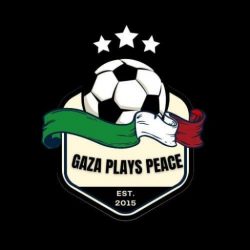Israeli missile vanishes the souls of four children from ONE family on Gaza beach. In 16 July, 2014 life became harder for the family of Baker, they lost their innocent boys, and up to this moment they cannot understand how come!?. Children playing soccer, is it a crime?
Israel military attacks in 2014 — “Operation Strong Cliff” started in the 8th of July till the 26th of August — was one its most crucial ever against the Palestinians who are besieged in the city GAZA on the coastal strip of land. Aside from the destruction of almost all civilian residential buildings and its disproportionate use of air strikes, among war crimes that Israel committed in that aggression was its often direct target to civilian places and camps. This was insanely the most shocking crime since Nakba. But read to know the more!
In 16 July, Eight children from Bakr family ventured onto the beachfront at Gaza City’s small port, playing near the boats that their fathers used for fishing to earn their bread. During the aggression, Israel banned all Palestinian fishermen from going out in their boats and essentially closed the port. Any fisher-man violates orders will be taken by the Israeli naval corpse.
As the four cousins – 11-year-old Mohammad Ramiz Bakr, 9-year-old Ismail Mahmoud Bakr, and Ahed Atef Bakr and Zakariya Ahed Bakr, both aged 10 – continued to play with other children from their family, Israeli forces shelled the area and the fishing boats. One of the boys was killed immediately. The other seven children started running from the beach when a second shell killed another three innocent boys.
Three other members of the Bakr family were severely injured in the attack: 13-year-old Hamad Bakr was hit by shrapnel in the chest; 11-year-old Motasem Bakr was injured in his head and legs; and Sayed Bakr injured in the back and thigh by shrapnel.
A photographer for the New York Times, Tyler Hicks, witnessed the second strike after he heard “a loud, close blast.” He then heard the second trike while grabbing his equipment, later recalling that “I saw that boy running, and by the time I thought he was already dead. That’s the image that will stay in my mind.”
Following the killing of the four boys, Israeli military confessed that it had done the strike and called it, in a bad manner , ” Tragic” claiming that it was a mistake and they have not recognized the children and thought that they were Hamas militants. International outrage followed and Israel launched its own stupid internal investigation on the killings, which was completed almost a year later in 2015.
The results of the report exonerated Israel from an obvious crime : “The incident took place in an area that had long been known as a compound belonging to Hamas’s Naval Police and Naval Force (including naval commandos), and which was specified to military groups.” This compound, said the Israeli statement, “spans the scale of the breakwater of the Gaza City sea shores, closed off by a fence and clearly separated from the beach serving civilians.”
This was the Israeli military claim, even though the area around which the children were playing was in the clear sight of close tourism restaurants and hotels where international journalists used to stay at all the time. All of those journalists reported that they saw no militants in that area at the time of the shelling. That is to say, the Israeli army killed those children DELIBERATLEY and it could not be a mistake or a technological ERROR, because they are just boys.
The Israeli military statement also saying that it had “carried out a number of attacks on the compound in the days prior to the incident” and, in one attack the day before, “a container was inside the compound, which used to contain military supplies, and that it was attacked lately.”
This, again, contradicts the social media accounts of many journalists who were there. The compound in question, they confirmed, was easily accessible to both fishermen and local Palestinians who visit the beach to swim or sit, therefore making it a poor location for Hamas to store military supplies. Moreover, the container that the Israeli report described used to have contained no military equipment when investigated.
August 2018 The Intercept a secret report by the Israeli military police said that the strikes were made WITHOUT authorization. According to the leaked reports, the Israeli drone operators confessed that they contacted their superiors after they killed the first child, seeking authorization for the second strike and clarification on what to do about the escaping children who they allegedly MISTOOK for militants. The report although states that “less than a minute later, the drone operators decided to launch a second missile, killing three more children, despite never getting a command to their request.”
Killing those boys was, as far as many people are concerned, a tangible evidence that Israel was targeting civilians and civilian areas indiscriminately in its numerous air and sea attacks against Gaza Strip. It symbolizes the killing of those innocents, children being regarded as blameless and easily recognized from Hamas fighters, and not connected at all to politics or any family member who is into such acts.
Three years later, Israel while at least 1,500 homes destroyed in that same 2014 aggression are still rubble
Seven years later, justice for the Bakr boys has yet to be served. Israel’s “investigation” of its OWN war crime has made sure of such thing.






